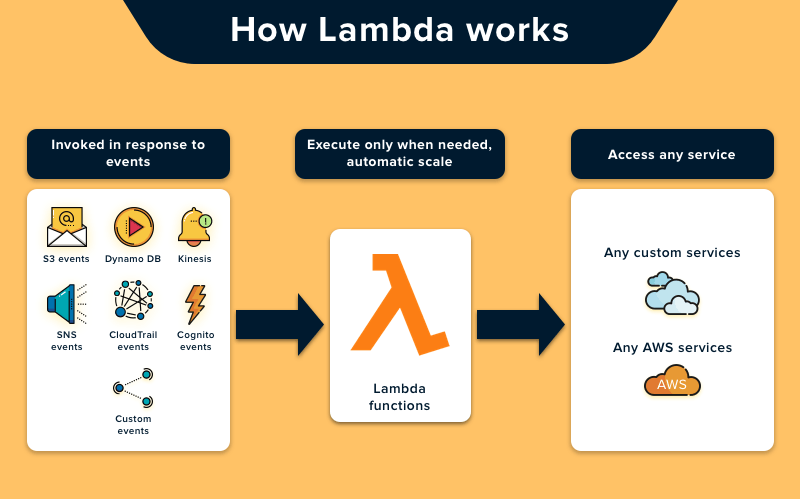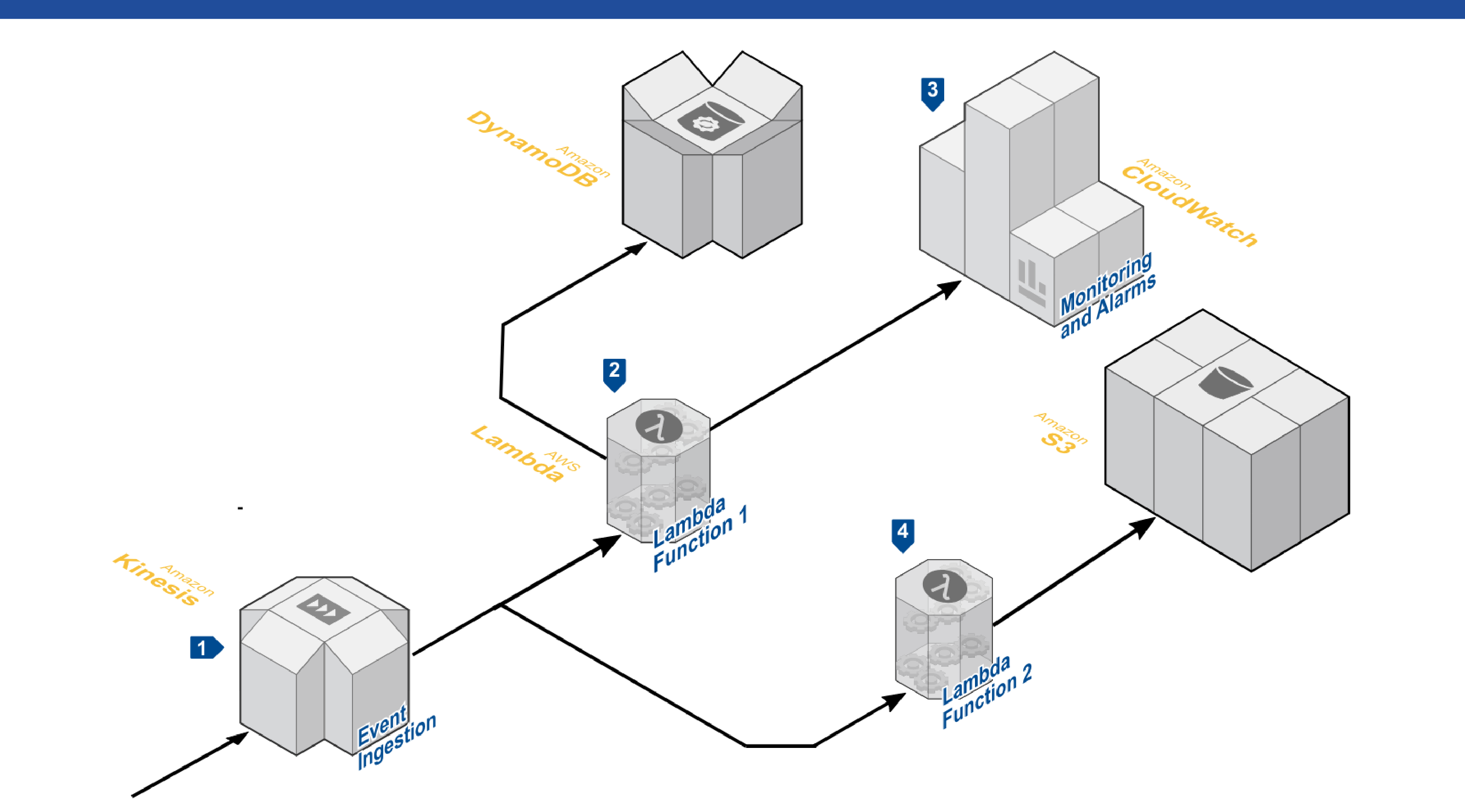
AWS Lambda is a compute service that lets you run code without provisioning or managing servers. Lambda automatically scales your application by running code in response to each trigger. Your code runs in parallel and processes each trigger individually, scaling precisely with the size of your workloads.
Even if you process a million events per second, Lambda scales seamlessly so that your code runs immediately in response to each event, providing near-instantaneous performance at any scale. AND because Lambda runs your code on a high-availability compute infrastructure, you don’t have to worry about configuring or managing servers.

All you need to do is supply your code in one of the languages that Lambda supports: Java, Go, PowerShell, Node.js, C#, Python, and Ruby code, and provides a Runtime API which allows you to use any additional programming languages to author your functions.
5 cases for using AWS Lambda
1. When you need a compute service that can scale quickly and automatically.
As anyone who’s ever worked with cloud computing knows, one of the biggest challenges is managing scalability. You need a service that can handle sudden spikes in traffic without breaking the bank – and that’s where AWS Lambda comes in. Lambda is perfect for situations where you need on-demand compute power, such as handling real-time user requests or processing streaming data. So if you’re looking for a scalable, serverless compute service, AWS Lambda is definitely worth checking out.

2. When you want to pay only for the compute resources you consume
AWS Lambda executes your code only when needed and scales automatically, so you can build applications that respond quickly to new information. Lambda is an ideal solution for data processing, analytics, content transformation, application backends, API development, and chatbots. In addition, because Lambda functions are stateless, they can be started or stopped at any time without losing their place or affecting the rest of the system. Best of all, you only pay for the resources you use, so you can save money on your compute costs. So when you want to pay only for the resources you consume, Lambda is the way to go.
3. When you need high availability and fault tolerance
AWS Lambda makes it easy for you to build applications that respond quickly to new information. Lambda runs your code only when needed and scales automatically, so you can build applications that cost less but run just as well. Lambda is a perfect fit for cases, such as powering real-time applications, building microservices, and processing data streams.
4. When you want fine-grained control over permissions
One of the great things about AWS Lambda is that it gives you fine-grained control over permissions. Unlike some other cloud providers, Lambda lets you specify exactly who can access your resources and what they can do with them. This makes it an ideal platform for security-sensitive applications. Of course, this also means that you need to be careful when granting permissions to users. Otherwise, you might end up giving them more access than they need. But if you take the time to understand Lambda’s permission model, you’ll be able to create a fine-grained security policy that meets your needs.
5. When you are developing a serverless application
Developing a serverless application can be a daunting task, especially if you are new to the world of AWS Lambda. By offloading the responsibility for managing server infrastructure to a cloud provider like AWS, developers can focus on building features and deploying code, rather than worrying about capacity planning and configuration management. And when it comes to serverless applications, AWS Lambda is the gold standard; it also offers a wide range of features and benefits.
However, there are a few tips and tricks that can help you get the most out of your Lambda functions.
- When you are creating a new function, be sure to select the appropriate trigger. This will ensure that your function is only executed when it is needed.
- Make use of Lambda layers to manage dependencies. This will keep your function code clean and tidy, and make it easier to deploy updates.
- Don’t forget to test your functions before you deploy them. This will help you catch any errors and ensure that your application is ready for production.
Conclusion
AWS Lambda is a great tool for anyone looking to take their website or application to the next level. It’s easy to use, has a wide range of features, and is very cost-effective. However, it’s important to remember that Lambda is a managed service, so you’ll need to be careful about how you use it. If you’re not careful, you could end up with a bill that’s much higher than you anticipated. Overall, though, Lambda is a great option for anyone looking to add some serious firepower to their website or application.